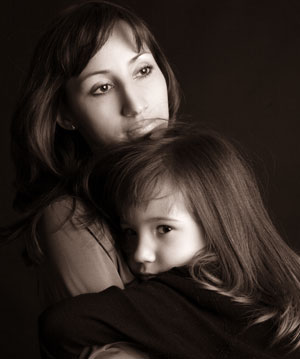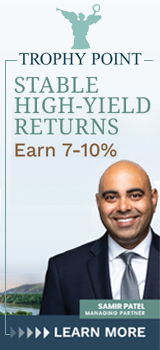The Conscious Parent – – Dr. Shefali Tsabary
About the Author
Shefali Tsabary, Ph.D., received her doctorate in Clinical Psychology from Columbia University, New York. Dr. Tsabary was exposed to Eastern philosophy at an early age and integrates its teachings with Western psychology. It is this blend of East and West that allows her to reach a global audience, and establishes her as one of a kind in the field of mindfulness psychology.
Dr. Tsabary has worked with a varied demographic: survivors of the Tsunami, women from economically disadvantaged countries, inner city youth, suburban families, and corporate leaders. She lectures extensively on Mindful Living and Conscious Parenting around the world and currently has a private psychotherapy practice in New York city. Her first book, It’s a Mom: What you should know about the early years of motherhood debuted on the Indian bestseller list for four weeks.
–Shefali Tsabary, Ph.D.,
 To parent perfectly is a mirage .There is no ideal parent and no ideal child. Each of us imagines we are being the best parent we can be, and most of us are indeed good people who feel great love for our children. It certainly isn’t out of a lack of love that we impose our will on our children. Rather, it stems from a lack of consciousness. The reality is that most of us are unaware of the dynamics that exist in the relationship we have with our children.
To parent perfectly is a mirage .There is no ideal parent and no ideal child. Each of us imagines we are being the best parent we can be, and most of us are indeed good people who feel great love for our children. It certainly isn’t out of a lack of love that we impose our will on our children. Rather, it stems from a lack of consciousness. The reality is that most of us are unaware of the dynamics that exist in the relationship we have with our children.-
It isn’t our children who are the problem, but our own unconsciousness.
-
Our unconsciousness is not our children’s to inherit, but ours to excavate.
-
Love and truth are simple. Parenting is not that complicated or difficult once we become conscious because a conscious person is naturally loving and authentic.
- We teach more by example than in any other way. Children see and imitate everything. They also see through hidden agendas and malicious intent.
-
Children are too egotistical to be thinking of us when they are acting out; they are only thinking of themselves. So don’t take it personally. Inappropriate behavior is a cry from the heart: “Please help me.”

-
What have I based the pillars of my parenting on?
-
Have I unconsciously based the pillars of my child’s success on their ability to “do,” produce, and succeed?
-
Am I able to allow my child’s spirit to first flow naturally before “doing” sets in?
-
How much pressure do I put on my child to become the person I want them to be, versus who they naturally are?
-
Do I view my child with a sense of lack or abundance?
-
Do I look at my child and constantly see them for all they yet need to become, or am I able to sit with my child in the wonder of all they already are?
-
How do I teach my child to have inner connection?
-
How do I engage with my child?
-
How do I listen to my child-passively, or actively with engaged presence?
-
Am I able to see my child for all that they truly are?
How do I help foster my child’s connection with their inner self? -
How do I model my own inner connection with myself?
-
How do I view life?
-
Is it benevolent or evil? Does the answer depend on the circumstance I find myself in?
-
Becoming a conscious parent requires us to recognize how our unconsciousness, bequeathed to us by the collective unconsciousness, cripples our children.
-
For instance:
-
It is we who teach our children how to be greedy by giving them diamonds instead of sticks and stones
-
It is we who teach our children how to fear adventure by rewarding their successes and reprimanding their failures
It is we who teach our children how to lie to us by getting angry with them when they tell us the truth -
It is we who teach our children how to be mean and violent to others by disregarding their emotions and denying them unconditional acceptance
-
It is we who teach our children to lose their motivation and zeal by pressuring them to excel and “be something”
It is we who teach our children to dishonor us by pushing them to be who they are not -
It is we who teach our children to be bullies by dominating their spirit and silencing their voice
-
It is we who teach our children to be confused and overwhelmed by giving them all things external, but few tools to look internally
-
It is we who teach our children to be in attentive and distracted by inundating their lives with busy activities, leaving no space for stillness
-
It is we who teach our children to live their life looking outward by spending our time and energy on our own looks and acquisitions
-
It is we who teach our children to disrespect us by not stopping them the first time they are disrespectful and every time after
-
It is we who teach our children to be defiant by not knowing how to lay down the rules and mean business when we do
-
It is we who teach our children to know shame by shaming their spirits and judging them constantly
-
It is we who teach our children to become anxious by denying the celebration of our own present as we constantly focus on tomorrow
-
It is we who teach our children not to like themselves by constantly categorizing their emotions as those we approve of and those we don’t
-
It is we who teach our children not to trust the world by betraying them every time we don’t see who they are in their essence
-
It is we who teach our children how to love or not love by the extent to which we love or don’t love ourselves,
-
We all feel the pull to act in familiar, predictable ways. To detach from this habit and respond in an authentic, spontaneous way isn’t easy. though it:” precisely what’s required if we are to parent effectively.
Ten Steps towards Conscious Parenting
Step 1: Accept that the journey begins with us – the parent.
Step 2: Set the intention to raise ourselves into the parents our children need us to become.
Step 3: Act on the need to change the parenting paradigm.
Step 4: Work to grow in consciousness daily.
Step 5: Free ourselves from the grips of our past.
Step 6: Parent our children how they are, not as we wish they
would be.
Step 7: Shift from doing to being; from ego to essence.
Step 8: Build strong emotional bonds with our children.
Step 9: Encourage our children to accept and honor their feelings.
Step 10: Commit to starting the journey to conscious parenting – right here, right now.



























